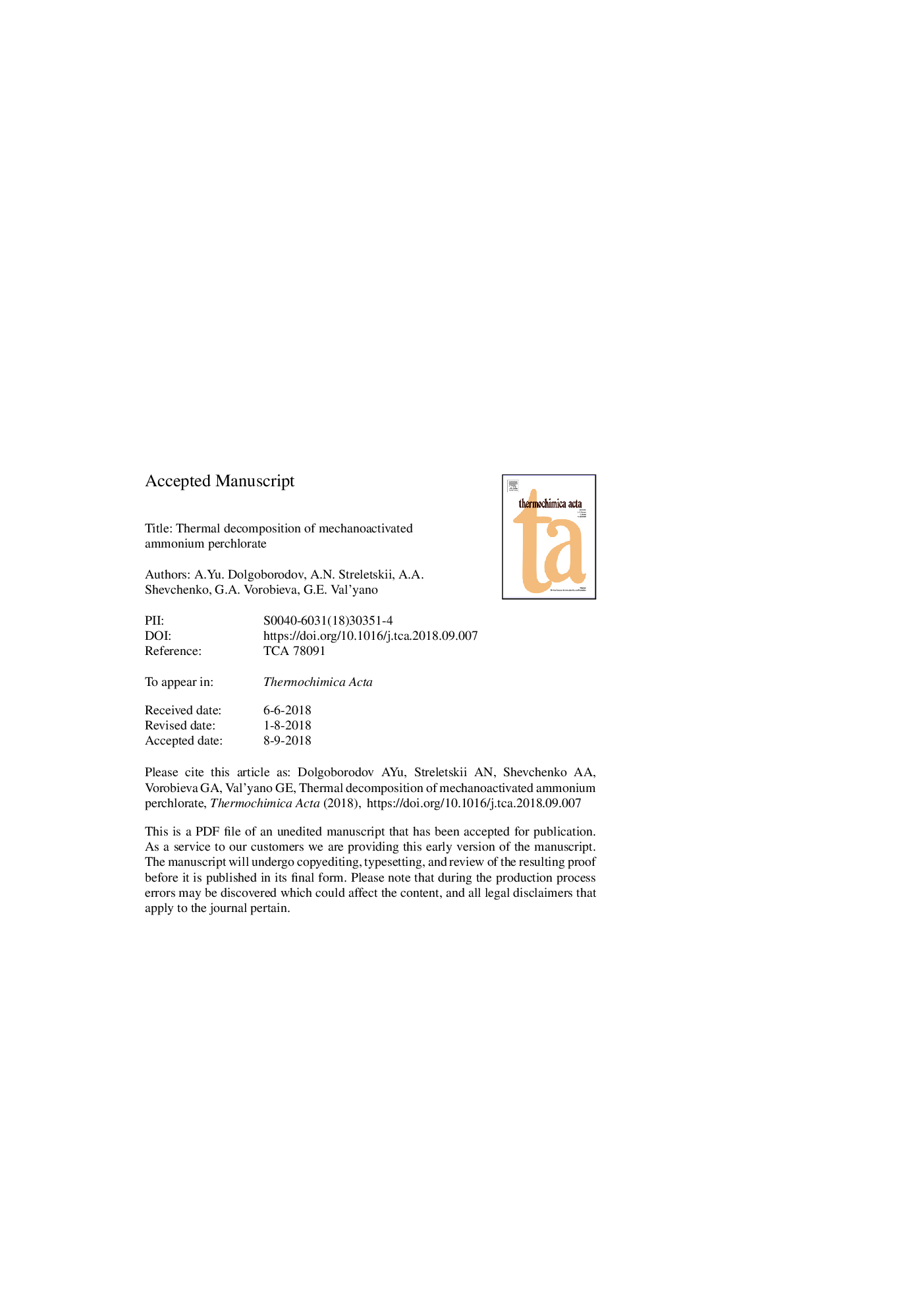| Article ID | Journal | Published Year | Pages | File Type |
|---|---|---|---|---|
| 10152074 | Thermochimica Acta | 2018 | 15 Pages |
Abstract
The regimes of non-explosive mechanical treatment of ammonium perchlorate (AP) in high-energy intensity planetary ball mill are found. The changes in the structure and reactivity of AP as a result of mechanical processing were studied by methods of synchronous thermal analysis with registration of mass spectra, x-ray diffraction, microscopy and elemental analysis. Mechanical treatment reduces the particle size from 1000â¯Î¼m to a fraction of μm and leads to formation of agglomerates of submicron particles with sizes of 5-10â¯Î¼m. X-ray diffraction analysis shows the absence of the formation of new phases and a substantial broadening of the diffraction lines. As a result of mechanical activation, the temperature of AP thermal decomposition decreases by more than 100â¯Â°C, accompanied by the rapid release of oxygen at temperatures of 250-260â¯Â°C, immediately after the phase transformation in AP. The results obtained make it possible to explain the phenomenon of a significant increase in the detonation ability of mechanically activated AP and its mixtures with Al.
Related Topics
Physical Sciences and Engineering
Chemical Engineering
Fluid Flow and Transfer Processes
Authors
A.Yu. Dolgoborodov, A.N. Streletskii, A.A. Shevchenko, G.A. Vorobieva, G.E. Val'yano,
